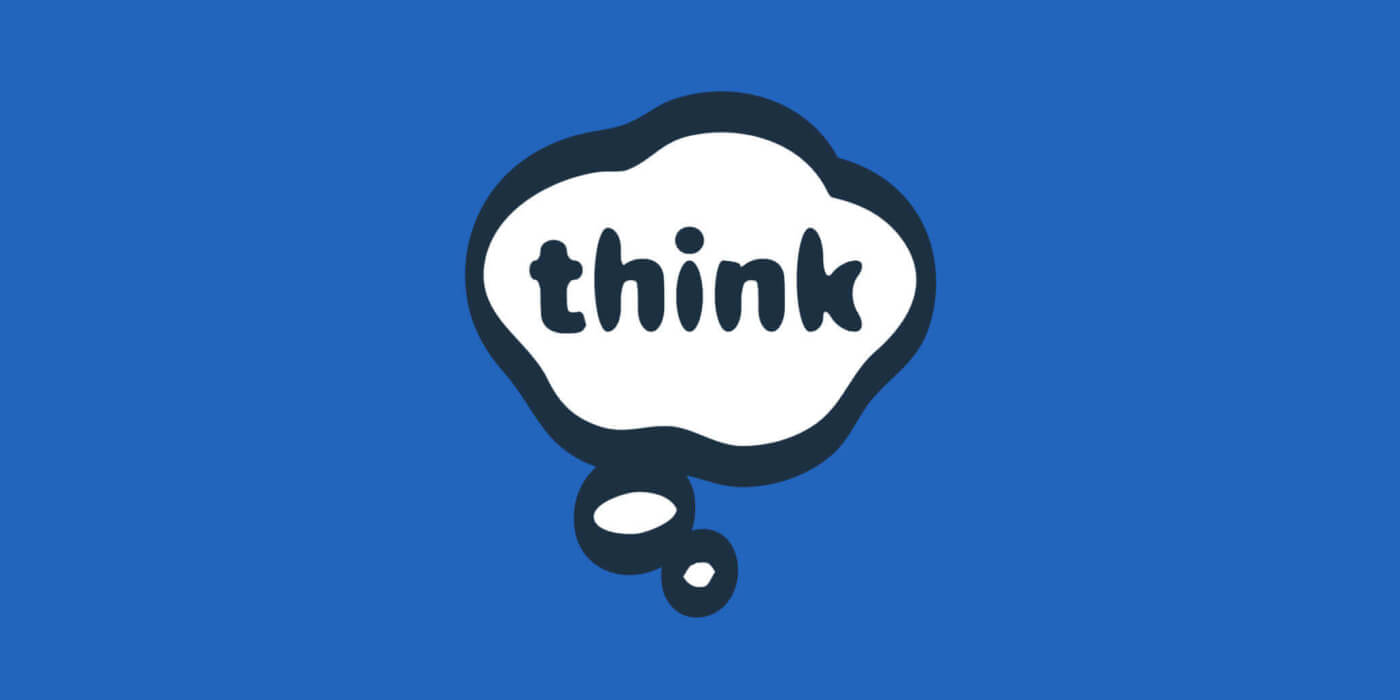8 Random Reasons You Shouldn’t Have Panicked Over Facebook’s New T.O.S.

This is a bit of a departure from typical Think Blog postings, but it’s been running through my head for a few days so I thought I’d share this with you.
Recently, Consumerist noted that Facebook (FB for those of us in the know) revised their Terms of Service (ToS) to claim more ownership of content posted on their site. Other media outlets quickly followed the story. FB quickly responded in order to avoid the perception that they were salivating over the pennies they could make selling your profile photo – but as the firestorm continued to rage, a few days later FB retracted their new ToS entirely.
Many people in our industry are hissing and honking about it like a flock of geese at a breadcrumb convention. Not me. Here’s why I’m not concerned and why you shouldn’t be either:
1. Your Stuff Isn’t Worth Anything
I know it hurts for you to hear this, but that status update about your toes needing to be waxed, that photo of your kid kissing a one-legged goat, and that poem you wrote about your love for cheese isn’t really of any commercial value to anyone. FB doesn’t want to publish it. I’m going to make an educated guess here and say that approximately ALL* of the content on FB has no commercial value on its own. The value of FB to you is the ability to keep in touch with other people – the value of FB to FB is that they can focus advertising to you based on your profile, postings and behavior. I did a quick survey of some artists (one musician, one painter) last year and they both speculated that the folks who don’t get over this culture of ownership will be left behind.
(*margin of error +/- .0001%)
2. Stealing Your Stuff Isn’t Part of Facebook’s Business Model
They make money off of advertising, not selling your 2nd grade class photo. Sure, they could explore other ventures like publishing a book of the 25 worst “25 Random Things About Me” lists – but if they were smart, they’d go to the authors and offer them a few bucks for the mention in the book. If they DO publish that book, they’re not that interested in the pennies they’d make from it. It’s an idea from their marketing department to generate more traffic to the site.
3. Copyright Does Not Transfer That Easily
If I had purchased Andy Warhol’s original Campbell’s Soup 1 in 1968 and then sold 1000 prints of it, I’d be in trouble. Why? Because owning the painting does not immediately grant me the copyright to it. Andy would still have to sign it over to me.
I’m fairly confident that if FB started taking the small percentage of content on their site that is valuable and attempted to make a mint off of it, no passive ToS agreement would stand up in court. Under US copyright law, ownership doesn’t transfer unless there is an agreement signed by the owner (that’s you). Read all about copyright law here. So is a passive ToS agreement sufficient? I’m sure there are several copyright attorneys who would love to charge you $200/hr to advise you on that.
So, back to that Consumerist article. Technically, when they say, “Make sure you never upload anything you don’t feel comfortable giving away forever, because it’s FB’s now”, they’re being irresponsible. You are still the copyright holder, you’ve just passively given FB some rights to it. As they tried to explain, they thought those rights would help them maintain a feature set.
4. You’re a Thief
This again applies to approximately ALL of us (with a few self-righteous exceptions). You are likely to have something that someone else created and should have been paid for. It is probably in your music collection, or in that box of VHS tapes in your basement. If you’re over 35, you may remember that mix tape you stayed up all night making for that special someone…well, the second you handed it over, you became a thief.
Many agree that copyright laws are antiquated and need to be changed to reflect our digital world. This is enough justification for most people to yank that copy of “My Humps” from their friend’s iTunes and store it in theirs. I renamed mine “Pachelbel’s Canon.”
Guess what? You stole it. Guess what else? The publishing industry is starting to care less about you doing so, because you don’t have a lot of money. Guess who has money? Facebook! To protect themselves they wrote a ToS that – for the most part – they wouldn’t have used unless they needed to protect that huge pile of money they roll around in like Scrooge McDuck.
5. Technically You Don’t Have the Right to Publish a Lot of Your Content Either
Here’s one example: everyone has a right to their own image. These laws exist to protect you from libel, slander and other malicious behavior. Consider that photo of your college roommate lying in a pool of his own vomit in his bed. If he becomes a senator and you want to sell the photo to the New York Times, you may not be able to do it. The NYT will ask you for the signed image waiver. You can’t use a private photo of anyone for commercial purposes without an image waiver. If FB wanted to sell your work of art to the paparazzi, they’d need more than just your passive acceptance of their ToS to do it. The paparazzi get around it by taking photos in public places, where we don’t have a reasonable expectation of privacy.
6. You’re Not Stupid
At least I hope you’re not. Look, if you finalized your plans for an engine that runs off of water or if your new toe-tapper is going to be the next “Safety Dance” – then don’t post it on FB. If you’re putting something you believe has some kind of commercial value on the Internet then you ARE stupid. Don’t blame FB.
7. The Folks at Facebook Aren’t Stupid
FB’s main revenue stream is likely going to remain advertising. That advertising is dependent on their ability to grow their user base. If they start alienating their users by stealing their stuff and making what amounts to pocket change off of it, someone will come along and create a FB clone and promise not to steal content.
Remember MySpace? It was all the rage way back in 2006. FB stole a ton of their users from them simply by making their site more usable, extensible and avoiding the clutter of poorly placed advertising. This market is volatile and users are fickle. FB knows not to mess with you. Everything will be OK.
8. Their New ToS Was About Protecting Their Business, Not Getting At Your Content
So why did Facebook do it? Beyond Mark Zuckerberg’s reasons, my guess is simply to protect FB. Call me naïve, but I doubt they have a grand scheme to use your content for some huge commercial gain. They claim it’s because they need these protections to share your content with other users. My guess is that they also want to be able to promote FB without having to deal with your petty lawsuits. So if they put a screenshot of a friend list in an ad, your face happens to be in it, and you decide to sue, their battalion of lawyers can march into court with the ToS and make you go home.
What Have We Learned?
There actually IS a User Experience lesson in here: your decisions have consequences. FB wanted the content you shared with people to persist beyond your life on the site. Some lawyer realized that didn’t jibe with the ToS agreement… so they changed it AFTER THE FACT. This caused an uproar.
Good UX designers know the landscape they work in and try to anticipate issues before they come up. What’s the outcome of the FB issue? Someone in UX may have to go back and write up a series of requirements around your content being pulled from every nook and cranny if you close your account.
Well, hey, the economy is a mess and jobs are scarce, at least FB is keeping a gang of UX designers, developers and testers busy as they change their minds.
2/19/09 Update
Something I didn’t articulate in the original article, but should have: FBs speedy reaction and apparent desire to include users in the formation of their ToS is what we should expect and demand from our social networking providers.
We are also starting to hear some rumbles in the press that call for more effective privacy laws. As KS notes in the comments of this post – privacy IS something to be concerned about when participating in any Social Media outlet. Much of our current legal system is antiquated when it comes to User Generated Content and Social Media. Perhaps this event is the catalyst for some actual reform.



